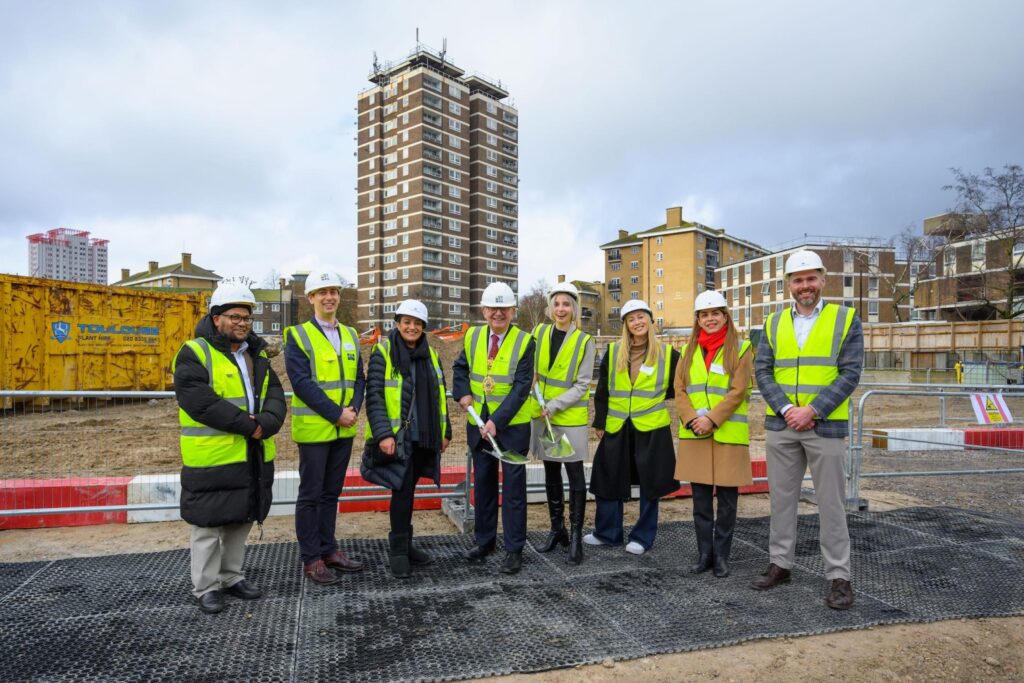Organisations, publications and marketing campaigns often reflect on racial equality during Black History Month, but there is a distinct lack of evidence or data being published for the UK housing sector. We need racial equity to achieve a housing sector that works for the many, not the few.
On the steps of 10 Downing Street in 2016, then Prime Minister Theresa May claimed that her government would “make Britain a country that works not for a privileged few, but for every one of us”. In line with this objective, the Race Disparity Audit was published the following year, however it offered little new insight to ethnicity and public policy research and the government’s subsequent response offered even fewer solutions.
The pursuit of racial justice in housing has a long and detailed history. In order to address disparities, it is crucial to differentiate between achieving equality and achieving equity. While both aim to combat racial injustices, they offer significantly different approaches and outcomes.
Equality or equity?
Housing has a significant impact on how people live and affects their access to employment, education and broader services. In the UK, racial equality calls for the elimination of discrimination and looks to assure equal access to housing for all – it is a legal requirement under the Equality Act (2010).
However, a study by the Joseph Rowntree Foundation (2023) found that the number of people living in destitute households, in which they are unable to afford to meet basic physical needs such as shelter and sanitation, increased by 148% between 2017 and 2022.
So, why are Global Majority households – Global Majority (or PGM) is an emerging term within discussions about race. It is a collective term that refers to people who are Black, Asian, dual-heritage, indigenous to the global south. These groups represent approximately 80% of the world’s population – still more likely to encounter barriers to meeting housing needs, despite the increase of policies and practices designed to accommodate diversity?
Because equality is not the same as equity. Equality operates under the assumption that its success will correct historical and systemic disadvantages. Equity, however, acknowledges that in order to achieve equality, interventions targeting and correcting existing disparities are necessary.
Equity in practice
Despite ethnic inequalities remaining a key feature of the UK housing system, a 2022 study by the UK Collaborative Centre for Housing Evidence (UKCCHE) found that over the past 15 years, attention to race equality has waned. There is a scarcity of data and evidence.
In light of this, a renewed effort by researchers and housing professionals to incorporate practices addressing racial disparities is paramount. This research must take a holistic approach, accounting for the historical and systemic injustices faced by Global Majority communities.
The creation of Global Majority-focused housing associations, pioneered by activists, and the resulting Global Majority-focused sub-sector, spearheaded the way for a focus on race equity that remains crucial to addressing racial disparities in housing.
Over a three-year period, specialist BAME (Black, Asian and Minority Ethnic) housing associations let 66% of their social properties to Global Majority applicants. In comparison, just 17% of mainstream social landlords did the same.
The Global Majority-focused housing sector enables communities to control assets linked to neighbourhood investment and health and wellbeing services that, in turn, boost social mobility and life chances for members of their communities.
Policy statements from the Scottish and Welsh governments recognise race equality in housing as a priority. Still, the UKCCHE identifies weaknesses in its implementation, and though the English government recognises the persistent inequalities in housing, it attributes this to “other factors” that do not include discrimination and racism. There is limited clarity on what these other factors are.
What we do know, however, is that achieving equity has benefits for all. The Help to Buy programme, for instance, could have achieved equity by seeking to promote equality and fairness in accessing the scheme benefits or incorporating ways to improve homeownership for all traditionally underrepresented groups; racial, ethnic and socio-economic.
In the pursuit of a more just and inclusive housing landscape, it is essential to recognise the historical and structural disadvantages faced by marginalised communities.
By working towards race equity, the UK can take steps to level the playing field and ensure housing opportunities work “not for a privileged few, but for every one of us”.
Images: Duncan Shaffer and Clker-Free-Vector-Images
More features:
A lack of permanent solutions will result in groundhog day for housing
New consumer standards for social housing in England: a brave new world, or business as usual?

















Leave a Reply